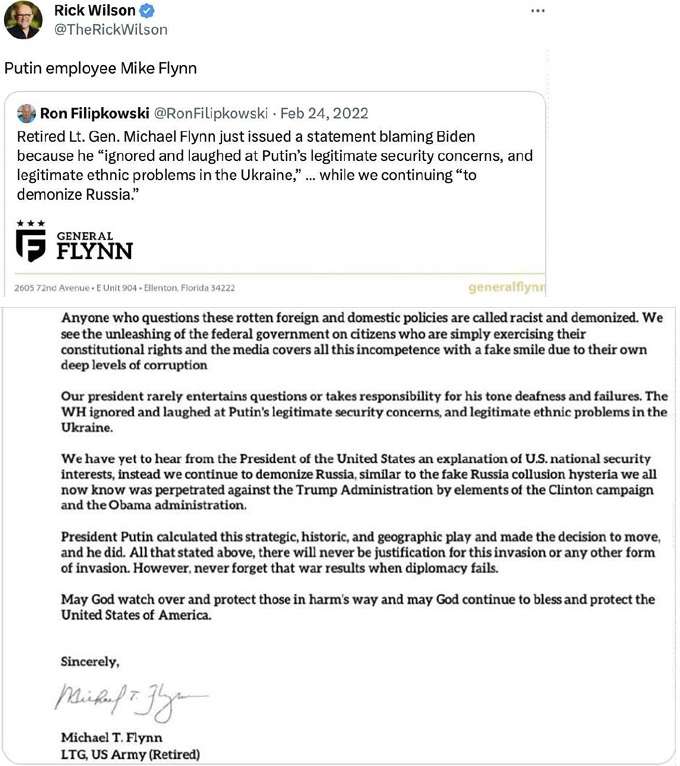Court Dismisses Flynn’s Libel Suit Against Lincoln Project Co-founder Wilson
This case revolves around a defamation lawsuit filed by retired Lieutenant General Michael Flynn against political strategist Rick Wilson. Flynn, a prominent public figure with a history of controversy, sued Wilson for $50 million and injunctive relief over two tweets: one referring to Flynn as a “Putin employee” and another retweeting the claim “FYI, Mike Flynn is Q.” The Florida Court of Appeal affirmed the trial court’s summary judgment in favor of Wilson, concluding that both tweets were protected speech under the First Amendment.
The court’s decision heavily emphasized Flynn’s status as a public figure, highlighting his distinguished military career, role as former National Security Advisor, and continued engagement in public discourse, particularly regarding the 2020 election and the war in Ukraine. This public prominence meant Flynn had a higher burden of proof in a defamation case, needing to demonstrate “actual malice” on Wilson’s part. The court also acknowledged Wilson’s standing as a vocal political commentator and author critical of the Trump administration, establishing a context for his online pronouncements.
The “Putin employee” tweet was deemed rhetorical hyperbole, not a statement of fact. The court considered the tweet within the context of Flynn’s own published letter, which appeared sympathetic to Russia’s position on Ukraine. This context, the court reasoned, would lead a reasonable reader to interpret the tweet as commentary on Flynn’s pro-Russia stance, not a literal assertion of employment. The court drew parallels to a Ninth Circuit case involving Rachel Maddow, where a similarly exaggerated claim was protected as opinion. It also noted the medium of the communication – Twitter – as further supporting the interpretation of hyperbole rather than factual assertion.
Regarding the “QAnon” retweet, the court found that Flynn had not presented sufficient evidence to demonstrate actual malice. While Flynn argued that associating him with QAnon damaged his reputation, he provided no evidence supporting this claim, nor did he explicitly deny being Q. The court acknowledged the ambiguous nature of QAnon and the difficulty in proving or disproving association with it, but placed the burden on Flynn to demonstrate falsity and actual malice, which he failed to do. The judges viewed the retweet as another instance of non-actionable name-calling, citing other cases where politically charged labels were deemed protected speech.
The court’s decision underscores the high bar for proving defamation against public figures, particularly when the speech at issue is expressed in a context suggesting opinion or hyperbole. Wilson’s established history of sharp political commentary, coupled with Flynn’s own public statements and the informal nature of Twitter, contributed to the court’s determination. The ruling reinforces the principle that robust and even caustic political debate is protected under the First Amendment.
Ultimately, the court upheld the fundamental right to free speech, even when it involves vehement attacks on public figures. While acknowledging the potentially unpleasant nature of Wilson’s tweets, the court prioritized the broader principle of uninhibited public discourse. This decision reinforces the idea that the First Amendment protects a wide range of expression, even if not polite or fair, in the interest of promoting open debate on matters of public concern. The court concluded by emphasizing that such robust and sometimes sharp attacks are an inherent part of American democracy.
Share this content:












Post Comment